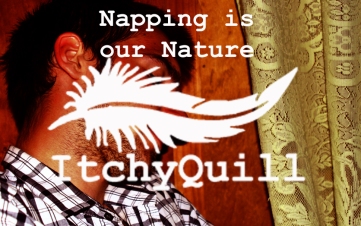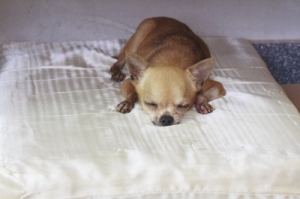What does the morning mean to you? Is it a long slog of repetitive alarm snoozes and chimes, ushering you violently from slumber into a world of cold air and heavy eye-lids? Perhaps you’re a peppy-pepster, buzzing from sunrise and bouncing about the house in giddy merriment? Or is the morning simply just the first in a series of common events, an inevitability of your daily slog, and a reminder that you are no longer dreaming?
Wherever you fit, I hear you.
A lot of fuss is made about mornings; the early bird catches the worm; early to bed and early to rise makes a man healthy, wealthy and wise; the morning has gold in its mouth.
These are three sayings that stress the importance of an early morning, the last two coming from a certain Benjamin Franklin (and I’m sure he must have said the first one too at some point).
Are you a morning person? Statistically, only about 10% are. In fact, only another 20% are night owls. That puts about 70% of us right there in the middle, neither late sleepers nor early risers, conveniently non-spectacular.
Here comes the sun
But what if we could harness the power of the sun? Like a blooming flower opening up in all its glory to spread itself out and bask in the sun’s aura, we too can be so grand and wonderful, no?
I know, I know. ‘I have a job’, ‘I have kids’, ‘I have Netflix’. These are not excuses, they are just facts of life. Obstacles will always be in your path, no matter what you do or where you do it. Life cares not for smooth sailing and calm seas. It will throw grenades, barbed wire and tornadoes, and expect you to take it all!
So, how do you get around this?
A routine of course!
It’s simple. Regularity breeds an environment where your body and mind know what is expected of them in certain situations and at certain times. By scheduling yourself to be doing specific actions at designated times, you get yourself into a very productive habit that can lead to serious long term gains. It also removes the chance for dilly-dallying and general horseplay (unless, of course, you have made time for that in your routine. In which case, fantastic!), and replaces this with well planned, well utilised time and activity.
Why bother?
“”Habits help us get through the day with minimal stress and deliberation,” says social psychologist Wendy Wood, provost professor of psychology and business at the University of Southern California whose research focuses on the effect of habits on behavior” (taken from the article The Blessings of Routine on ChicagoTribune.com).
Whether the routine is rising early and maximising your productivity in the morning (more on this to come), or structuring your movements and actions throughout the day so as to keep yourself maximising your time for your interests, your day can only get better.
Time is money, but time is arguably more important. They are two things that define and dictate our daily lives, and yet we have so much trouble emphasising to ourselves to need to manage our time as carefully if not more so than how we manage our finances. Are you spending your time on things you really want to? Whether it’s having more time to play laser tag with your kids, bake cakes with your grandma, sell stocks and close accounts, or write and read, we could all do with having a little extra time in our lives for these passions. Squandering time is as big a waste if not more so than throwing money down the drain!
When can I routine?
This part is easy! For those of you interesting in making time at the beginning and end of your day, there is a great video here on The Art of Manliness that explains how you can book end your day with a structured routine aimed at prioritising your time and making the most of setting yourself up to succeed every day!
In the coming weeks we will also be looking into the daily routine of some great people from history, and seeing how their daily structures helped them to be the best they could be. We’ll also give you a breakdown of why making special care of using your mornings in an effective way can set you up for an even better day.
Don’t put too much pressure on yourself though. Life is busy, and some of us are truly swamped by the things we have to do, leaving us little time for the things we want to do. Small changes, even anything such as making time for ten minutes of reflective thought every morning, are a start.
Your task for this week? Go forth and add something to your daily life. It doesn’t have to be something big, but it has to be something noticeable, and something you are capable of doing every day. For the more competent among us, perhaps look to try something a little taxing that may take a little juggling to actually be possible to fit in.
Some ideas:
- half an hour of reading before bed
- fifteen minutes of emailing friends in the morning
- 3o minutes of foreign language review before breakfast
- a morning jog (15-30 minutes is sufficient!)
- Keeping a journal, making time to write for at least 20 minutes every night (click here for the IQ breakdown of why journals are awesome)
Ultimately, the person who can control this is you. Don’t waste any more time thinking and yearning. With a planned routine, the thought process is removed and instead you only have moments for action! Knowing that every day you will be playing/practising/learning/growing can be a massive motivator, and a keen reminder that your life is moving in a fulfilling and enriching way.
What’s stopping you? Let us know in the comments what things you make a habit of doing routinely, and any tips you might have for others who are just starting to form routines of their own.
Special thanks to David Castillo Dominici, Kookkai_nak, marin, stockimages, TeddyBear[Picnic] and Tuomas_Lehtinen @ FreeDigitalPhotos.net for use of their photos in this blog.
© Itchy Quill and ItchyQuill.WordPress.com, 2015



















